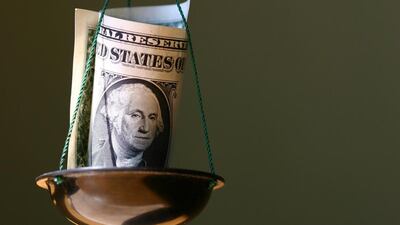The dollar gained on Friday and is set for its biggest weekly rise since early April as the euro weakened after a European Union meeting on Thursday to build a trillion euro emergency fund fell short of satisfying investors’ concerns.
Despite the agreement by EU leaders to build a war chest to help recover from the coronavirus pandemic, French President Emmanuel Macron said differences continued between EU governments over whether the fund should be transferring grant money or simply making loans.
Ulrich Leuchtmann, head of foreign exchange strategy at Frankfurt-based Commerzbank, said the outcome of the meeting reflected the disagreement among the group about resolving a widening crisis in Europe and preventing an escalation in peripheral bond yields.
The euro weakened broadly on Friday, falling 0.4 per cent against the US dollar to a one-month low at $1.07275.
Though the outcome of the EU meeting fell short on details on the fund, specifically in terms of how it will be financed or whether it will be linked to the EU budget, some analysts took heart from the fact that the meeting didn’t break up in acrimony.
However, the euro’s losses sent the dollar on track for its biggest weekly rise since early April. Against a basket of its rivals, the dollar was up 0.2 per cent at 100.72. On a weekly basis, it has strengthened more than 1 per cent.
Preliminary goods-orders data in the US and a German business sentiment survey due later on Friday are unlikely to improve investors’ mood, with any global recovery expected to be slow and patchy.
Besides, global shares also fell on Friday - spurred by delays to an agreement on divisive details of the EU’s stimulus package and doubts about progress in the development of drugs to treat Covid-19.
MSCI's All Country World Index, which tracks stocks across 49 countries, was down 0.5 per cent and heading for its worst week in three, while MSCI's broadest index of Asia-Pacific shares outside Japan shrank 0.9 per cent.
European stocks opened 1.4 per cent down.
"It’s a negative session," said Francois Savary, chief investment officer at Swiss wealth manager Prime Partners.
"The market for the last week has been under consolidation after a strong rally. A lot of good news has already been priced in and news that the number of deaths had increased in the US was also a warning sign for investors."

